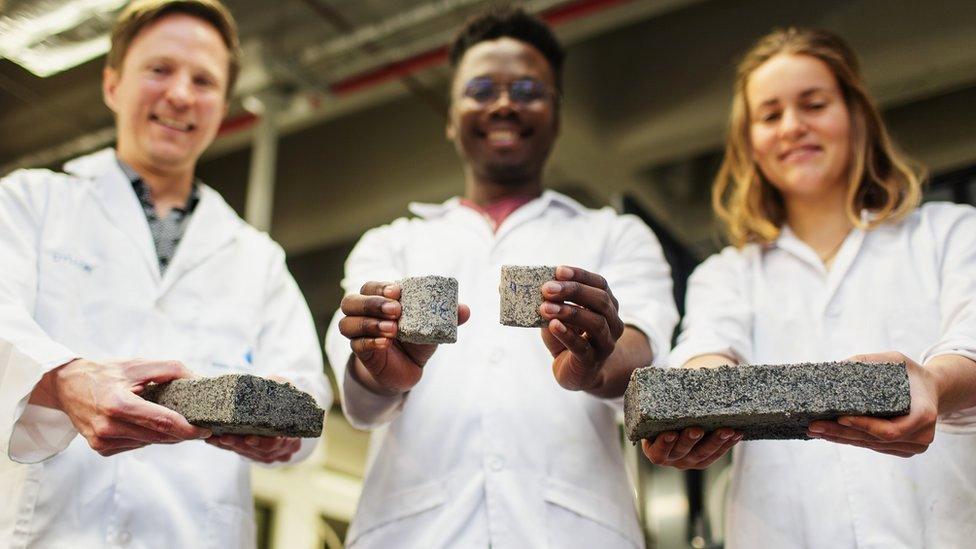Start-up turns urine from concerts into fertiliser
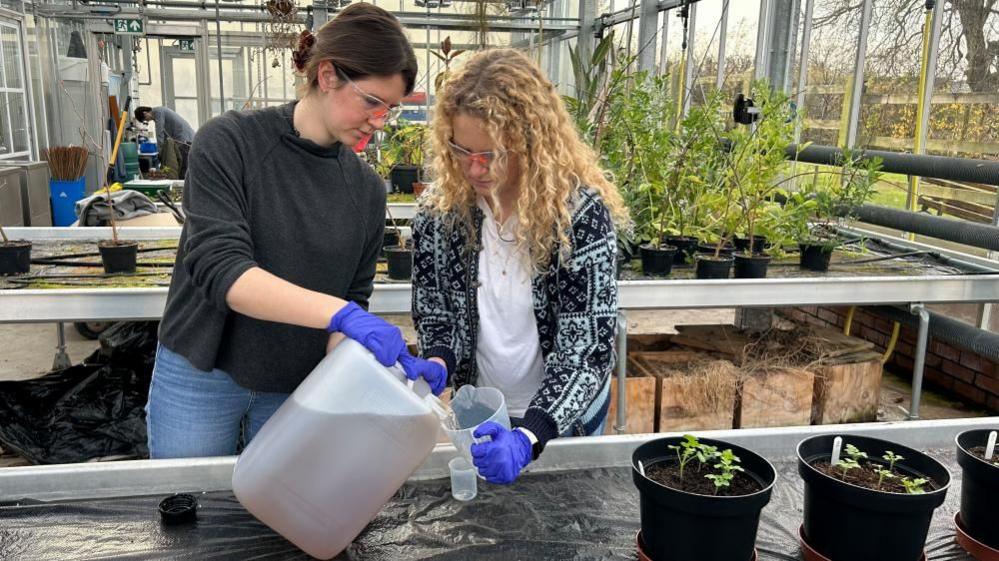
Olivia Wilson and Lucy Bell-Reeves say the fertiliser is from "an infinite resource"
- Published
A start-up company is conducting a "pioneering" experiment turning human urine into plant fertiliser.
Using urine collected from concerts that took place in Bristol over the summer, are NPK Recovery, based at the University of the West of England (UWE).
Manufactured fertilisers have been affected by fluctuating prices in recent years - caused by changing weather, transport disruptions, and the Russian invasion of Ukraine
Hazel McShane, from women's urinal firm Peequal, said: "This is really pioneering technology that will help farmers be sustainable."
The experimental fertiliser is currently being tested on mustard plants growing at UWE, and on wheat plants growing at the Royal Agricultural University in Cirencester, Gloucestershire.
The process is similar to treating waste water.
Bacteria breaks down the urine into the ammonium nitrate that plants need to grow.
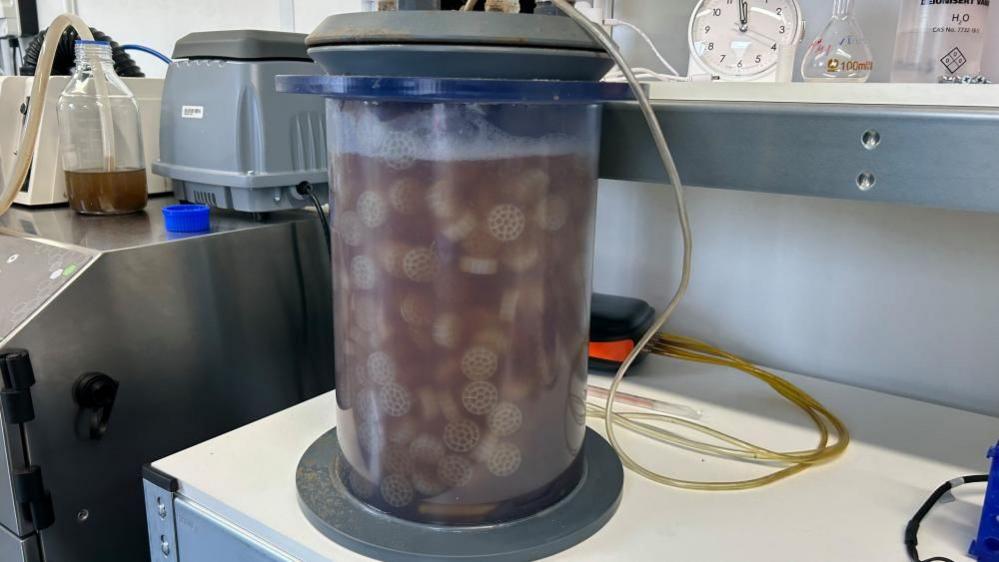
Bacteria will grow on the plastic pieces in a fermentation tank to produce ammonium nitrate to feed plants
"With a urine-based fertiliser, you wouldn't see price fluctuations," said Ms Bell-Reeves.
NPK Recovery is also hoping to make use of waste urine from toilets at concerts, which is usually driven hundreds of miles to be processed.
The urine in their tests was collected by the women's urinal company Peequal, from events like Massive Attack's concert on the Downs this summer, and Bristol Pride.
"Our fertiliser recaptures nutrients that would end up in waste water treatment otherwise, and the bacterial process is easy to scale up, said Olivia Wilson, research and development scientist at NPK Recovery.
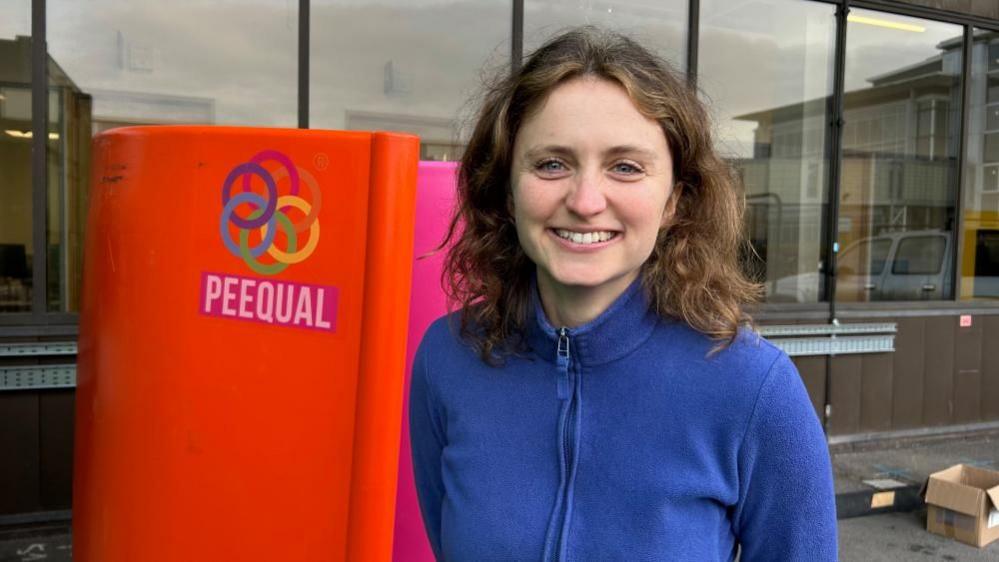
Hazel McShane from Peeqal said they had been hunting for a local way to process urine
Urine-based fertiliser is already used in the USA and in Europe.
Lucy Bell-Reeves from NPK Recovery, said: "The fertiliser we're producing is from an infinite resource.
"Instead of driving this waste urine from portable toilets around the country, it can be transformed here and turned into something useful," Ms Bell-Reeves added.
If the university tests go well, NPK will expand to commercial trials next year.
Get in touch
Tell us which stories we should cover in Bristol
Follow BBC Bristol on Facebook, external, X, external and Instagram, external. Send your story ideas to us on email or via WhatsApp on 0800 313 4630.
- Published19 July 2024
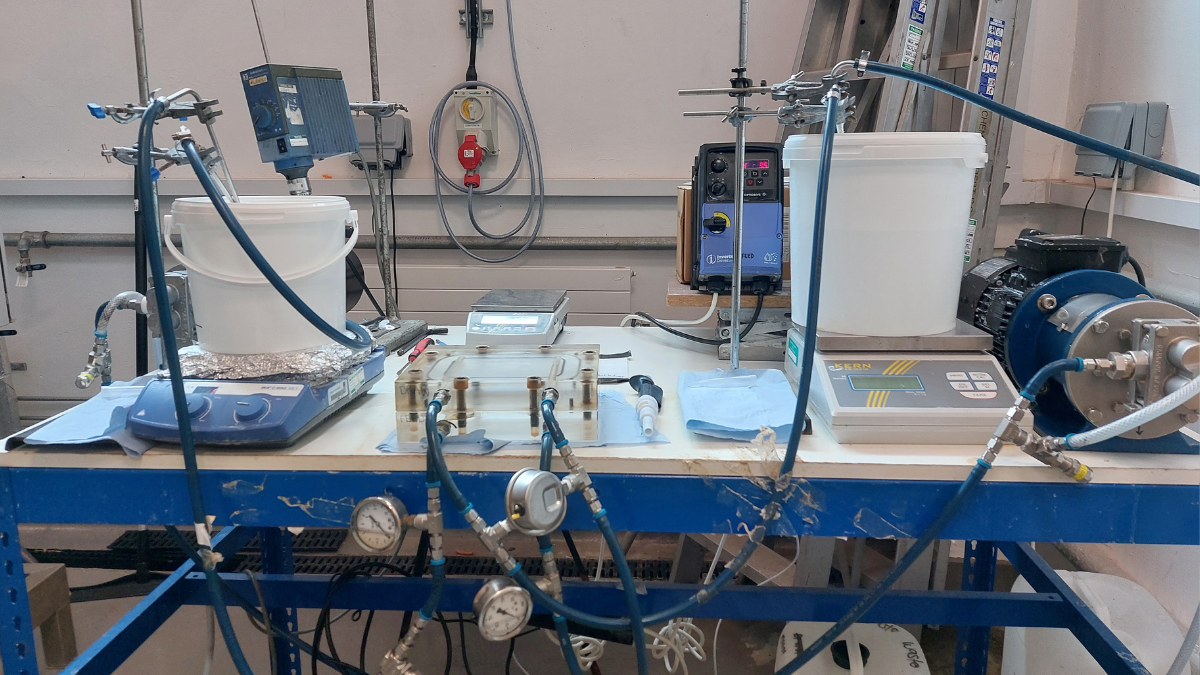
- Published23 June 2022
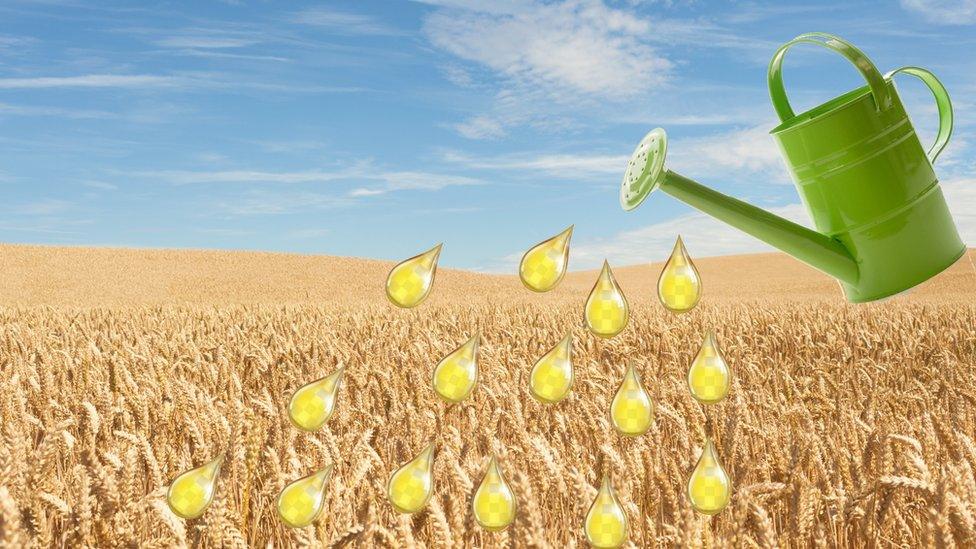
- Published25 October 2018
